Filters are used to set conditions of workflow executions to specific attribute values. You can configure complex limitation rules by adding multiple value filters to the branching logic of the workflows.
Please note that certain filters and their configuration options appear after enabling the relevant module in the Management UI. If you encounter a missing node, please contact the Antavo Service Desk for assistance.
Module dependencies of filters
Trigger node | Module required |
|---|---|
Event attribute | - |
Customer attribute | - |
Challenge progress | |
Variable | - |
Filter conditions
Configuring conditions for each type of filter involves the following steps:
Select an attribute
Available attributes are automatically populated based on the type of filter.Select an operator, the word(s) that define(s) the type of comparison
Available operators are populated automatically in the dropdown list.Define the value used for comparison
Using AND and OR relations offers a high level of flexibility for crafting complex rules of filter conditions.
Filter outputs
Each filter has two types of outputs: success (green) and failure (red).
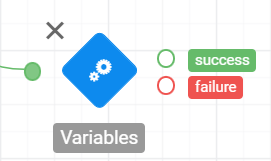 |
|
Types
Event attribute
The Event attribute filter enables you to direct workflow execution to specific trigger events only, based on the values stored in the attribute fields of the trigger event.
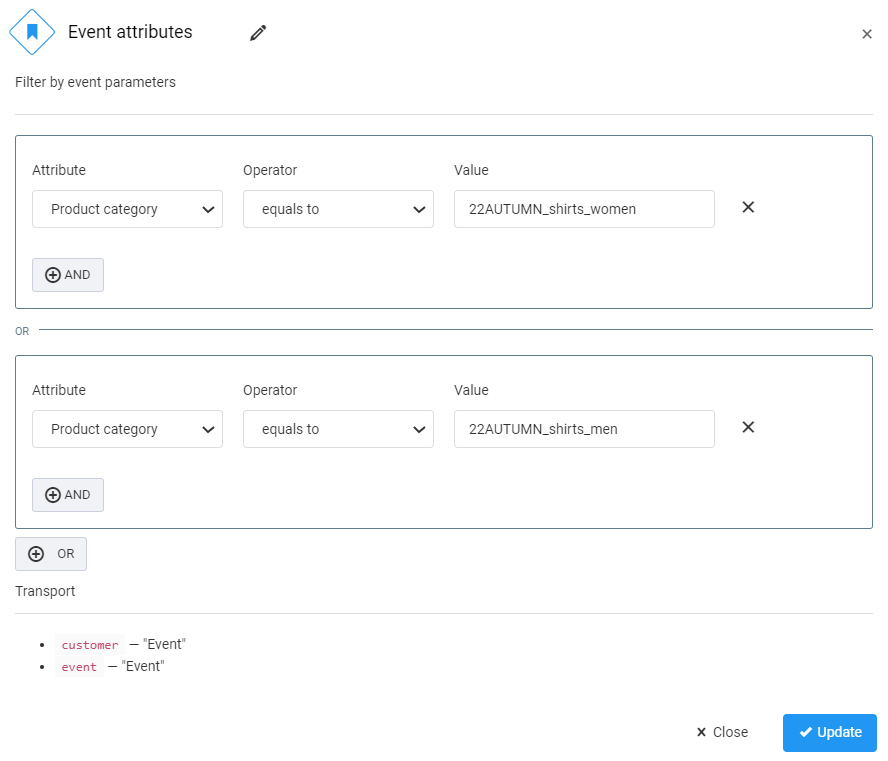
This example illustrates configuring the event filter to apply the workflow to specific Checkout item events based on the category of the purchased product.
You can include any parameter from the Event trigger or Historical event as a filter. However, note that the Event attribute filter isn’t accessible when using an On a date trigger or Challenge progress change since there’s no event trigger to specify.
You have the option to use both built-in and custom attributes as filters.
Customer attribute
The Customer attribute filter enables you to direct workflow execution to specific customers only, based on the values stored in the attribute fields of the customer object.
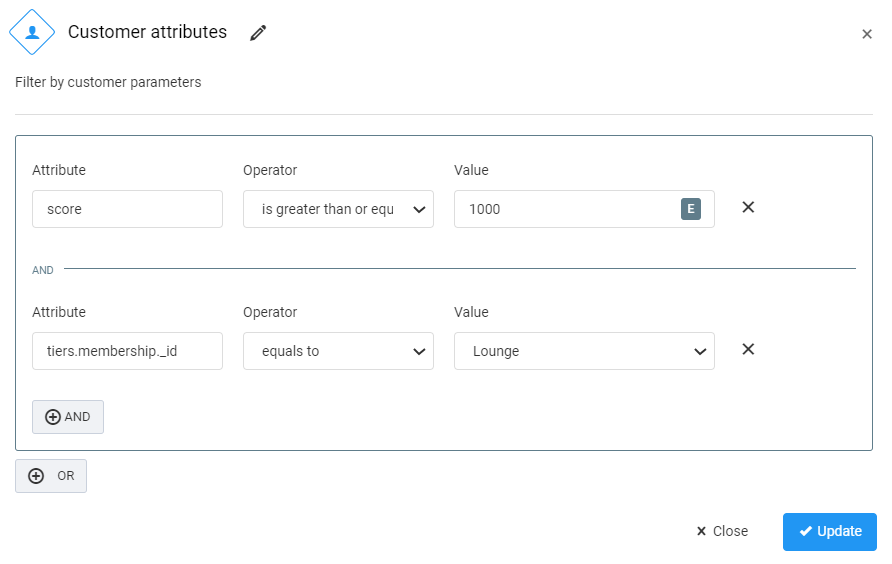
This example illustrates configuring the customer filter to apply the workflow to customers who have earned more than 1,000 points and have reached a specific tier.
The Customer attribute filter can be applied with any type of workflow trigger as there’s always a customer to whom the workflow is applied.
Both built-in and custom attributes can be used as filters.
Challenge progress
The Challenge progress filter enables you to direct the workflow execution to specific customers only, based on their progress in any configured challenge, whether active or inactive.
This filter allows you to filter progress based on overall challenge completion as well as each challenge criterion. You can specify the number of criteria completed or the percentage of challenge/criterion completion.
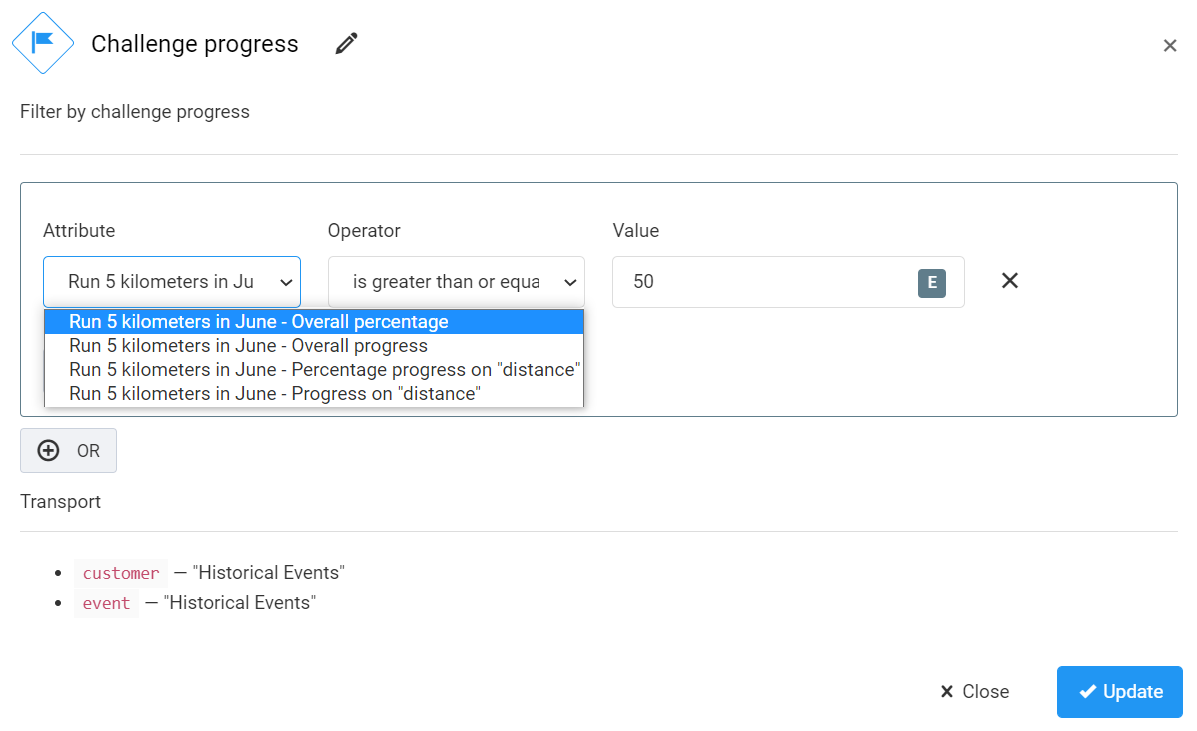
This screenshot displays all available options for the progress filter. The selected option is an example of filtering for customers whose overall progress in the Run 5 kilometers in June challenge is at 50%.
The Customer attribute filter is compatible with any type of workflow trigger since there is always a customer to whom the workflow is applied.
You have the flexibility to use both built-in and custom attributes as filters.
Variable
The Variable filter node can filter the value of a transport variable assigned in any previously executed nodes, such as Variable assign, Entity lookup, or Create custom entity nodes, within the workflow.
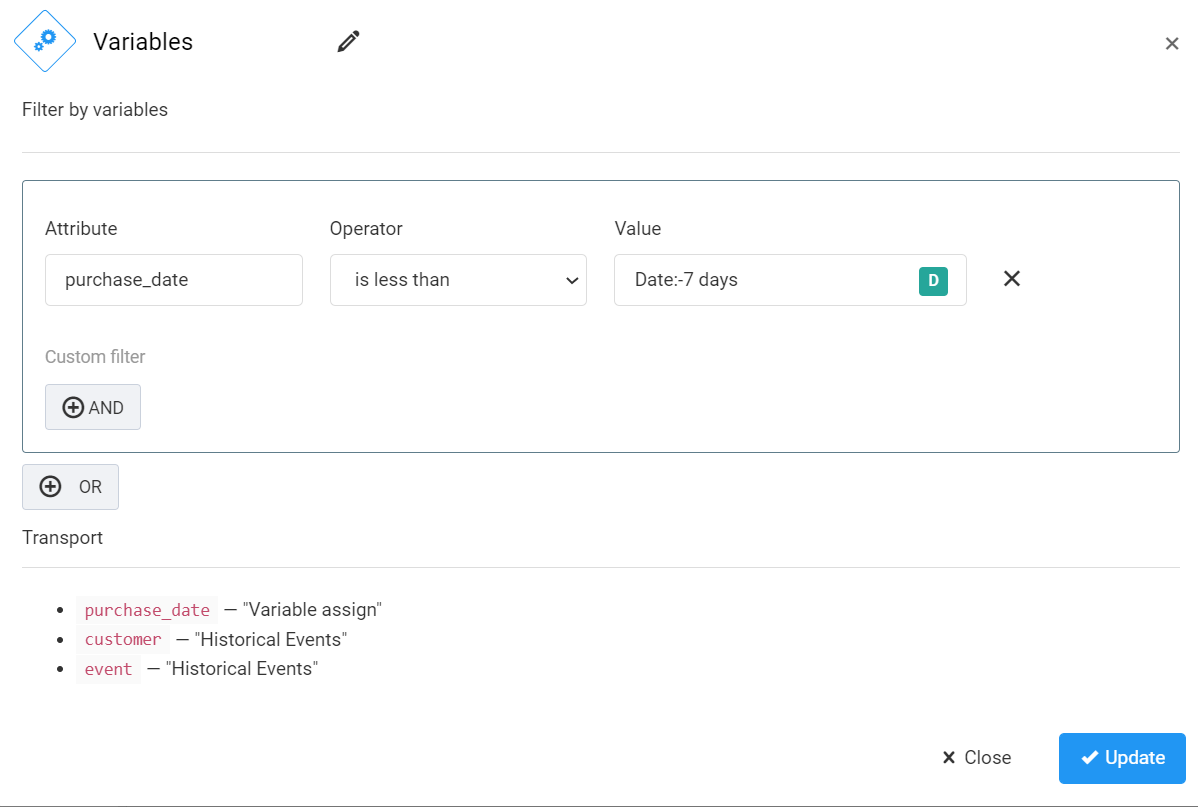
This example illustrates filtering the value of the previously assigned purchase_date variable. The filter verifies if the purchase was made more than 7 days ago.